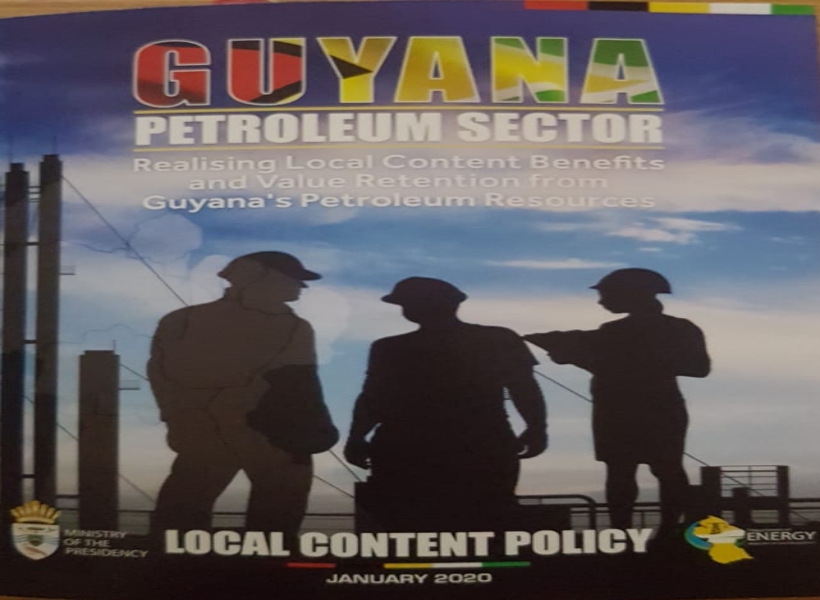There are a number of loopholes in Guyana’s Local Content Policy which makes one wonder if it is another manifestation of Government’s tunnel-vision approach to national issues.
A perusal of the document exposes that it does not address directly, mid and down-stream petroleum sector opportunities along with other policy issues related to the upstream petroleum sector which relate to health, safety, security, environment, community impacts, and tax and fiscal matters. It also does not address other petroleum-related issues such as using the oil revenues received for national development and planning and getting the oil companies to be part of that process.
Of significance is the fact that the policy itself admits that it is just focused on upstream oil and gas activities. Looking beyond the upstream development of petroleum to the mid and downstream petroleum processing and refining sub-sectors, it also acknowledges that Guyana’s history has made its citizens acutely aware of the opportunities that can be lost through the export of raw, unprocessed commodities, imposed in part by the capacity limitations of its institutions, businesses and capital markets, among other things.
At the same time, it notes that there are market-competitiveness risks when it comes to investing national income in mid and downstream petroleum opportunities in a small economy, especially in the context of a highly-competitive and volatile international market for petroleum-based products.
The policy notes that this is an important consideration and Guyana’s policy-makers are currently giving attention to these opportunities and risks.













